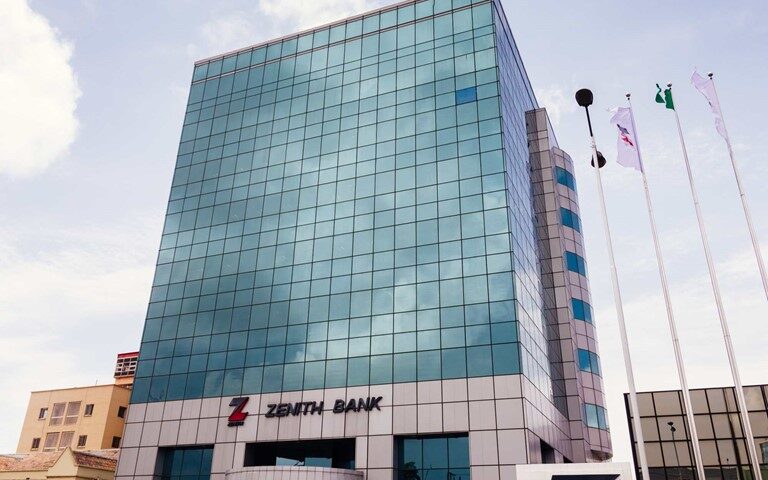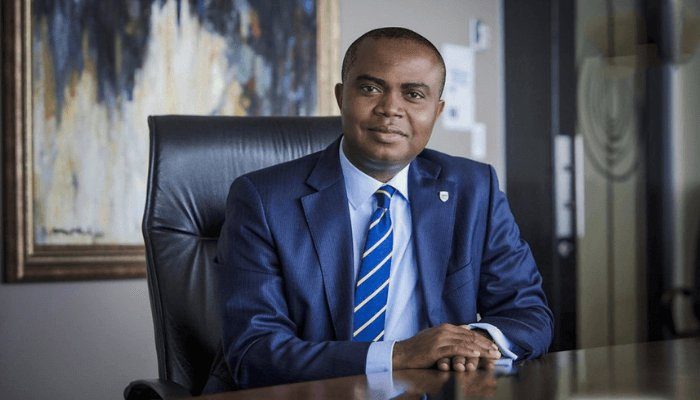* Petrol retailers declare shutdown from Tuesday
*IPMAN distances members from industrial action
*ERA kicks, knocks NLC, NUPENG
Emmanuel Addeh, Chuks Okocha, Onyebuchi Ezigbo in Abuja, Adibe Emenyonu in Benin City and Blessing Ibunge in Port Harcourt
The Nigeria Union of Petroleum and Natural Gas Workers (NUPENG) yesterday vowed to go ahead with its planned strike action today (Monday), in protest against the decision by the Dangote Refinery not to allow drivers of its newly imported Compressed Natural Gas (CNG) trucks join any trade union.
But the federal government pleaded with the union, which also kicked against the massive importation of the Dangote trucks, which it said will put its members out of business, to reconsider its stance on the nationwide industrial action, pledging to broker a dialogue to resolve the dispute .
The President of NUPENG, Williams Akporeha and the General Secretary of the union, Olawale Afolabi, in a statement in Abuja, maintained that the Petroleum Tanker Drivers (PTD) branch of NUPENG would refrain from lifting petroleum products from depots nationwide.
NUPENG also disowned a statement attributed to the President of the Direct Trucking Company Drivers Association (DTCDA), Enoch Kanawa, which claimed that NUPENG could not speak for members of petroleum tanker drivers. Kanawa had urged Nigerians to disregard the planned industrial action.
The leadership of NUPENG declared that the Kanawa-led DTCDA was a creation of the Refinery, which has vowed not to allow its recruited truck drivers to join NUPENG. The union argued that NUPENG is the only statutorily recognised union authorised to unionise the drivers.
NUPENG vowed that it would not surrender to what it called ‘slavish conditions’ being promoted by the refinery in the oil industry.
“We ask our members, members of the public and independent minded objective segments of the media to disregard (DTCDA) and its statements…Slavery ended centuries ago but some unscrupulous capitalists are making efforts to bring it back.
“Any worker who cannot exercise the right of association is no better than a slave. Ordinary Nigerians should neither encourage nor support slavish working conditions,” NUPENG maintained.
But while calling for a truce, the federal government pleaded with NUPENG to reconsider its stance on commencing a nationwide industrial action from today over alleged anti-labour practices.
A statement signed by Head, Information and Public Relations, Patience Onuobia said the plea was made by the Minister of Labour and Employment, Muhammad Dingyadi on Sunday.
The statement said that the minister also pleaded with the Nigeria Labour Congress (NLC) to withdraw the red alert it issued to its affiliate unions to be on standby for a nationwide strike in solidarity with the petroleum workers on their planned strike.
Dingyadi said that since his ministry has intervened in the matter, the unions should shelve their plan of shutting down the petroleum industry, with a view to maintaining peace in this highly critical sector of the Nigerian economy.
Dingyadi stated: “I have invited all the parties for a conciliation meeting tomorrow, Monday, September 8, 2025. Since I have intervened, I plead with NUPENG to rescind their decision to shut down the petroleum sector from tomorrow. I also appeal to the NLC to withdraw the red alert it issued to its affiliate unions to be on standby for a nationwide strike in solidarity with NUPENG.
“The petroleum sector is very important to this country. It constitutes the core of the country’s economy. A strike in the petroleum sector, even for just a day, will have an adverse consequential impact on the economy. It will not only lead to heavy revenue losses by the country, running into billions of Naira, but also cause untold hardship and difficulties for Nigerians.
“Hence, I plead with the unions to give peace a chance. I assure them that this matter will be resolved amicably to the satisfaction of all the parties involved,” Dingyadi stated.
The minister also assured Nigerians that the dispute will be resolved harmoniously to ensure that no disruption occurs in the petroleum sector, which is vital to the Nigerian economy.
Also at the weekend, the Petroleum Products Retail Outlets Owners Association of Nigeria (PETROAN) announced a three-day forewarning of suspension of lifting and dispensing of petroleum products commencing from the early hours of Tuesday, September 9, 2025, in its ‘advocacy for healthy competition’ as against any form of monopoly in the Nigerian Petroleum downstream sector.
PETROAN’s National President, Dr. Billy Gillis-Harry, made the announcement while addressing members nationwide and newsmen in Abuja, emphasising that the action of NUPENG would be both lawful and peaceful, underscoring the association’s commitment to promoting workers’ rights and benefits through constructive engagement.
PETROAN underscored its commitment to advancing the interests of Nigerian citizens in the pricing stability of the petroleum sector and promoting a stable and productive industry.
The organisation called on President Bola Tinubu, Minister of State for Petroleum (Oil), Heineken Lokpobiri, among others, to intervene urgently in the proposed actions of NUPENG and PETROAN to avert potential hardship and pain on citizens arising from the suspension of lifting and dispensing of petroleum products.
He appealed to the President to find a solution to the crisis, ensuring the smooth operation of the oil and gas sector and minimizing disruptions to the nation’s economy.
Gillis-Harry said that pump attendants at PETROAN member filling stations are registered members of NUPENG, explaining that hence, NUPENG’s strike would mean these attendants would be absent from duty.
He instructed filling station owners not to discipline or sack any pump attendant who would be absent from duty until the end of the strike.
“PETROAN has earlier advocated for healthy competition in the oil and gas sector, as opposed to monopolistic tendencies. The aggressive business strategies of Dangote Refinery would have far-reaching consequences, including pushing private depot owners, modular refinery operators, marketers, retail owners, truck owners, and truck drivers out of business,” the statement added.
This, PETROAN warned, would trigger millions of unemployment nationwide, with devastating effects on the economy and the livelihoods of Nigerians.
The organisation advised Nigerians to view any initial strategy aimed at gaining monopoly as a “Father Christmas” promise, cautioning them not to forget the events that unfolded in the cement industry. He urged Nigerians to be vigilant and not be swayed by promises that may seem beneficial in the short term but could have long-term negative consequences.
“In a bid to mediate on the proposed shutdown, PETROAN held an emergency ordinary national general meeting, where it resolved to hold consultations on Sunday and Monday. In the event of no fruitful outcome, the PETROAN Congress agreed to not to sack any employee who participates at all retail outlets nationwide by the early hours of Tuesday.
“To enforce this decision, a 120-man compliance team will be mobilised as watchdogs to ensure safety of our member’s facilities. As a critical player amongst stakeholders, PETROAN will join other stakeholders in ensuring healthy competition in the oil and gas sector of Nigeria.
“This collaborative effort aims to promote a conducive environment for workers, foster sector growth, and ultimately benefit the Nigerian economy”, it said in a statement.
Still on the planned strike, the national leadership of the Independent Petroleum Marketers Association of Nigeria (IPMAN) on Sunday distanced itself from a strike initiated by the Western Zone of the association which it said was opposed to Dangote acquiring trucks to transport its products to consumers.
The Western Zone in a press statement signed by its Chairman and Acting Secretary, Basorun Akanni and Mr. Adeleke Adeoye had said Dangote’s intention contravenes the Petroleum Industry Act (PIA) and urged its members to begin a strike on Monday.
However, a statement in Benin City by the National Ex-Officio, Douglas Iyike, on behalf of the National Executive Council (NEC) of IPMAN, urged its members to disregard the strike action.
Iyike added that what Dangote was doing constituted a huge assistance that would free them from multiple and choking levies they are forced to pay by petroleum tanker drivers. He also declared that the action of Dangote is supported by the PIA.
“I am refuting this story as the former chairman of IPMAN Benin Depot and presently the National Ex-Officio of IPMAN. That IPMAN National Executive Council (NEC) under the leadership of Alhaji Maigandi Shettima is not aware of the action preconceived by the IPMAN Western Zone going on strike by Monday.
“And as you would know, the PIA bill has given the room for any individual to own a refinery in the country and have their own trucks to distribute your products and even build petrol stations if you choose to. Dangote has not done any harm but good to we marketers and to the general public.
“However, I want to state unequivocally that the IPMAN western zone has no impetus to call for any strike as it lacks the constitutional powers to do so. It is only the National Executive Council of IPMAN that has the reserved right to do so and not the zone or any depot and the western zone should also by this statement take into cognisance that they are not on their own.
“They are under the NEC of IPMAN according to the IPMAN constitution of 2009 as amended and as such cannot take any decision of any kind of strike or demonstration regarding the interest of marketers without the approval of the National Executive Council of IPMAN. We advise esteemed marketers to go on with their normal day to day business,” Iyike stated.
He maintained that the Dangote Refinery will create jobs for the citizens of the country, explaining that direct distribution would make marketers get products on credit bases and pay the balance after sale.
Meanwhile, the Economic Rights Activists (ERA) has strongly condemned the Nigeria Labour Congress (NLC), NUPENG, PETROAN, and other affiliated unions for their planned nationwide strike, which it said threatens to disrupt fuel distribution and cripple Nigeria’s economic life.
During a press conference in Abuja, ERA’s Executive Director, Dr. Josiah Inuwa, described the proposed industrial action as a “reckless and unpatriotic” assault on the Nigerian people, warning that it would inflict severe hardship on millions while potentially serving the interests of economic saboteurs.
The unions’ grievances stemmed from alleged anti-union practices at the Dangote Refinery and accusations of monopolistic control in the downstream petroleum sector.
Inuwa, however, argued that the strike would primarily harm ordinary citizens—small business owners, transport operators, and families—rather than corporate giants.
He highlighted the devastating impact of past oil sector strikes, such as the 2012 fuel subsidy protests and the 2020 industrial actions, which cost the economy billions of naira daily and deepened recessionary pressures.
The group warned that the proposed strike could trigger similar losses, threatening Nigeria’s fragile economic recovery under Tinubu’s reforms.
Inuwa raised concerns about the timing of the strike, noting its alignment with efforts by vested interests to undermine Nigeria’s push for energy self-sufficiency through the Dangote Refinery, a critical step toward ending decades of reliance on imported fuel.
“Whether knowingly or not, NLC, NUPENG, and PETROAN risk becoming pawns of cartels that profit from the status quo,” he said, accusing the groups of orchestrating sabotage to derail the refinery’s success.
ERA also accused union leaders of hypocrisy, pointing to the disconnect between their public rhetoric and private privileges.
The post FG Calls for Truce as NUPENG Vows to Embark on Strike Today Over Dispute with Dangote appeared first on THISDAYLIVE.



